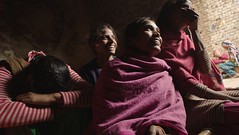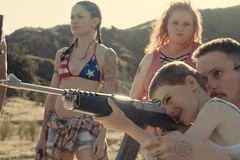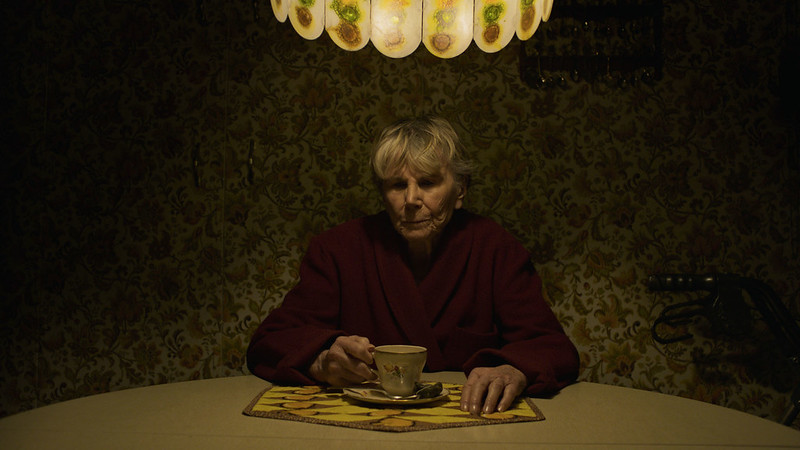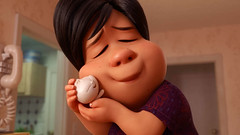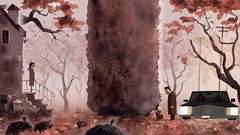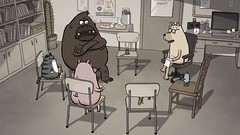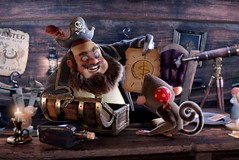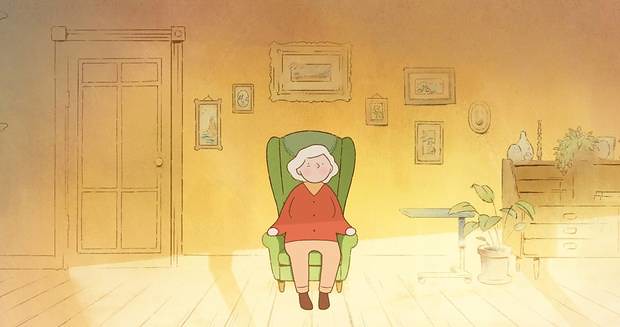FIGHTING WITH MY FAMILY
Directing: B
Acting: B+
Writing: B+
Cinematography: B
Editing: B+
Fighting with My Family opens by thrusting us into the local Norwich, England wrestling world of the Knight family, playing up how passionate this foursome is about the profession. It’s based on a true story, and the actual Knight family is from a town called Penzance in the southwest of England, but maybe the filmmakers thought that would remind too many people of Gilbert & Sullivan? Now I’m imagining the overlap in a Venn diagram of Gilbert & Sullivan fans and World Wrestling Entertainment fans. It’s probably at least a little wider among Brits.
Anyway, the family consists of middle-aged parents Ricky (Nick Frost) and Julia (Lena Headey, about as far from Game of Thrones’s Cersei as she could get), running a local business of small-time wrestling performances. With their eldest in prison, their star players are son Zak (Jack Lowden) and daughter Saraya (Florence Pugh). To a person, they are well cast, a playfully vulgar, tight-knit family with working-class charm to spare.
This movie does not shy away from the ins and outs of the wrestling industry, and early on Ricky finds himself explaining that “it’s not fake, it’s fixed,” and the job can result in serious injuries. Not since Darren Aronovsky’s gritty The Wrestler (2008) has anyone presented so honest a look at wrestling; the difference now is that writer-director Stephen Merchant moves away from self-destruction for a feel-good movie about triumph of will and moving beyond the limits of initial circumstances.
It’s a pretty standard Hollywood story arc, but you know what? Fighting with My Family works rather well on its own terms. I suspect at least one secret to its success is the British angle; Merchant himself is English, and thus offers a vital perspective. It seems less likely this movie’s sweet sincerity would play the same way in the hands of an American filmmaker.
And yet, it also stays true to the sensibilities of wrestling, and in particular wrestling fans. In spite of some subtle jabs here and there (“Our fans can’t read anyway”), this movie has no contempt or judgment of those who love and participate in wrestling. It gets a nice couple of scenes with Dwayne “The Rock” Johnson and a decent supporting performance by Vince Vaughn as an American wrestling coach.
The basic story focuses on young Zak and Saraya’s dream of becoming professional wrestlers — together, but difficulties must be overcome when only Saraya gets chosen to move on in the selection process. It’s relatively transparent how much of the story here is embellished for dramatic effect: Zak must deal with boiling resentment; Saraya must look past her own judgments of other, prettier women wrestlers and learn to make some friends.
Honestly, this is the kind of movie that I would not immediately expect to like, due to my own admittedly unfair biases. I was super into a movie like The Wrestler, but that was a movie about obsession and self-destruction in deeply nuanced ways, with wrestling as the backdrop. Fighting with My Family is a very different movie, the kind that is heartwarming by design, and is also clearly made by and for genuine fans of wrestling.
I’ve never been a fan of wrestling. I am, however, a fan of solid storytelling, and charismatic performers, both of which this movie has plenty of. It makes it the rare kind of movie that, for instance, both my more populist-leaning family members and I can enjoy. You could say this is a movie for everyone, a great choice for mixed company with people who can rarely agree on what to watch. At least, as conventional as its storytelling is, it has a subversive streak to it. I wouldn’t quite call it wholesome, but I would call it great entertainment for the whole family.
The family that body slams together stays together.
Overall: B+






